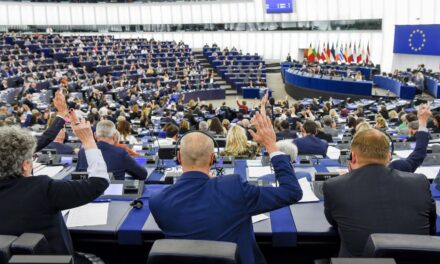In September 2021, the German Christian Democrats suffered one of their heaviest electoral defeats in the Bundestag elections. The departure of ex-Chancellor Angela Merkel from the political scene, the re-emergence of opposition politics after a decade and a half, and the party's tendentiously declining popularity all made the election of a new party leader who would respond to the challenges inevitable. Friedrich Merz became its president, winning 62.1 percent of the party members' votes. Merz's latest book was published this week by MCC Press.
Merz New times – new responsibility: Democracy and social market economy in Germany in the 21st century, the original German edition of the volume in the first chapter of the volume – with the issues of the challenges generated by the global Covid-19 epidemic and the opportunities created by the necessity to respond to them. At the same time, the sacrifices made at the individual, community and state level cannot be considered exclusively negative events, since they can result in systemic development in the right direction. As Merz writes:
"As a result of the crisis, in the longer term, a better political order and material prosperity can emerge worldwide that respects the principle of sustainability in a comprehensive sense, thereby opening up perspectives that can give rise to confidence and optimism."
In addition to the Covid-19 epidemic, the starting point of the book's other (significantly more racist) thread can be found in Merz's individual political involvement and ambitions. As a member of the leadership of the CDU, and then as a politician returning from voluntary professional exile, Merz recently unsuccessfully applied twice for the leading position of party president of the CDU, only to enter the ring for the same position for the third time this fall, this time as a towering favorite.
Since its publication in German, the book's ideas have lost none of their relevance, and what's more, just as the number of challenges facing Germany and Europe, their importance has only continued to grow.
Europe as a community will only be strong if it becomes a strong organization of equal partners, Merz believes in his book. If we forge into such a community, we will be politically more powerful than the sum of our parts. And in the end, this race will decide whether we play in the Champions League of the world's great political powers, or whether we remain in the district league as playthings of the big ones.
As Merz writes: "The reason why conservatism has acquired such a dubious reputation in Germany is also to be found in the fact that the CDU neglected to shape the concept in a positive sense with its own content and messages for many years. Instead, our party watched, paralyzed, as our political opponents on the left practically identified conservatism with the reactionary world of thought,
while on the extreme right, reactionary forces may actually have liked the role of the true guardians of conservatism."
Source, image and full article: magyarnemzet.hu













